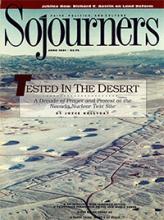When he was vice president and head of the Presidential Task Force on Regulatory Relief, George Bush helped create the tidal wave of deregulation that swept over the United States in the 1980s. Now, as president, Bush hopes to promote his deregulatory agenda on a global scale. The venue through which he intends to accomplish these aims is the General Agreement on Tariffs and Trade (GATT), an international trade agreement to which approximately 100 countries adhere.
Domestic deregulation helped bring about crises ranging from the savings and loan scandal to an epidemic of workplace injuries (and some deaths). International deregulation poses even greater dangers, threatening to impinge on Third World sovereignty and development, endanger the environment and consumer safety, and eradicate the jobs of U.S. family farmers and textile workers.
Bush's accomplices in his deregulatory scheme are the most internationally-oriented U.S. multinational corporations. Companies such as Cargill, the private grain trader; American Express; and Pfizer, a pharmaceutical manufacturer, have helped shape the U.S. position in the current GATT negotiations, known as the Uruguay Round. The overarching goal of the Bush administration is to remove any regulatory obstacles that interfere with the activities of multinational corporations.
For the Third World, the implications of the U.S. GATT proposals are horrifying. The Malaysia-based Third World Network, a coalition of more than 200 non-governmental organizations, appropriately labels the GATT proposals a means of "recolonization."
THE UNITED STATES IS attempting to bring three new areas under the GATT rubric: services (ranging from finance to telecommunications to construction), investments, and "intellectual property."
Read the Full Article
